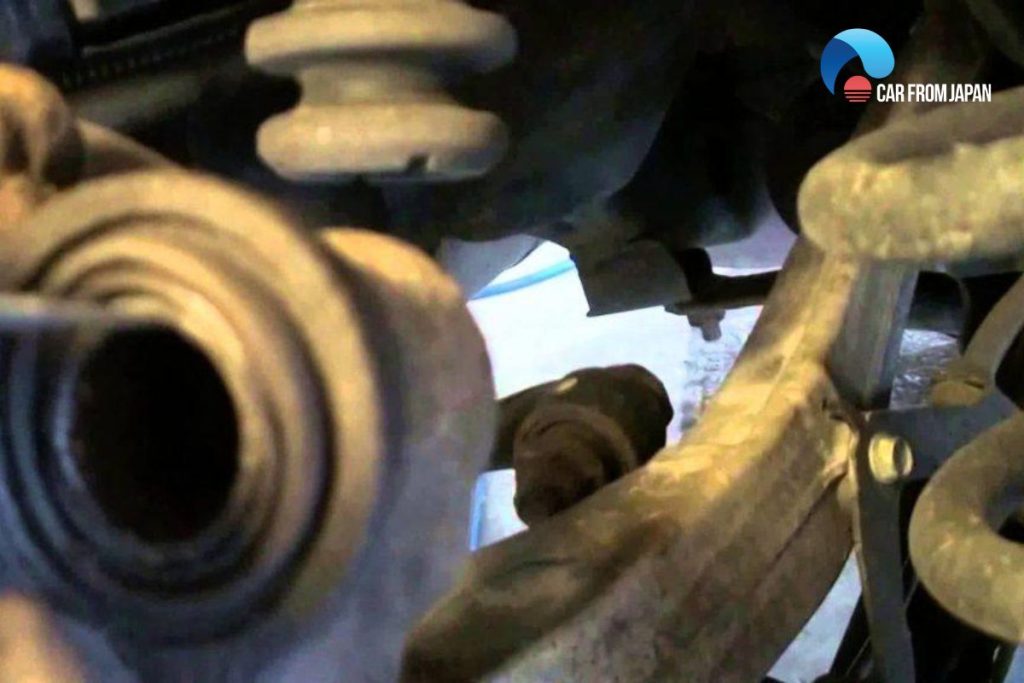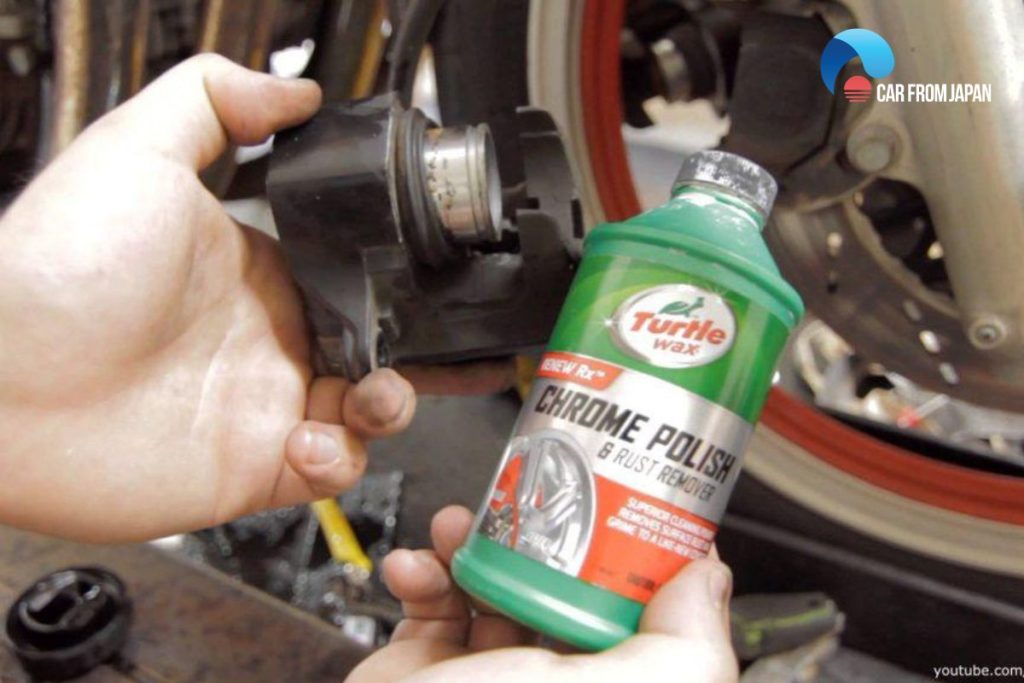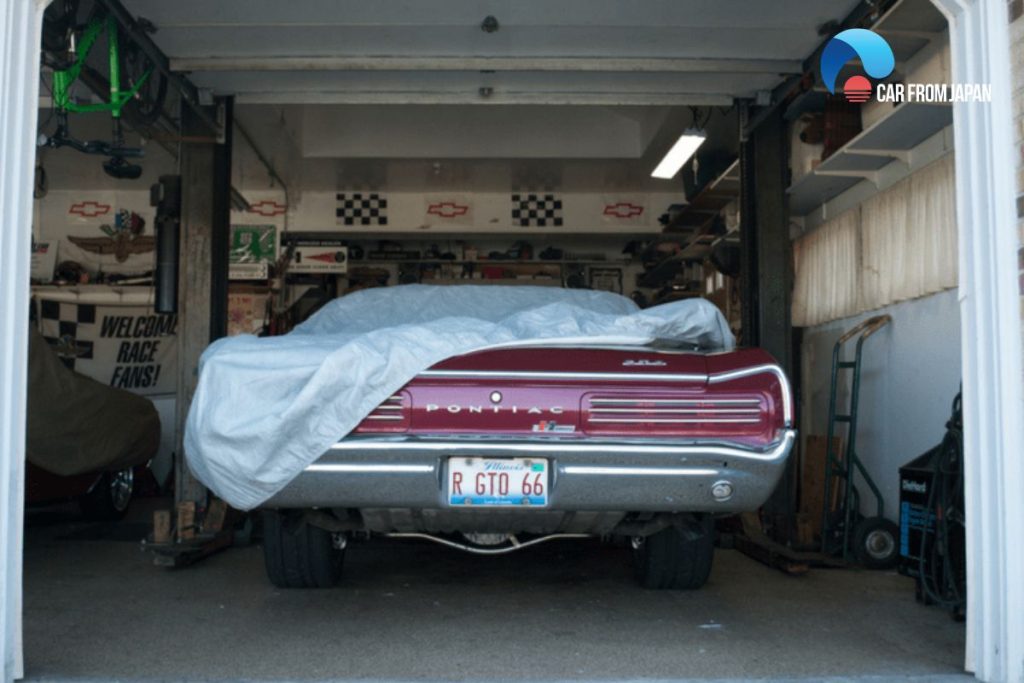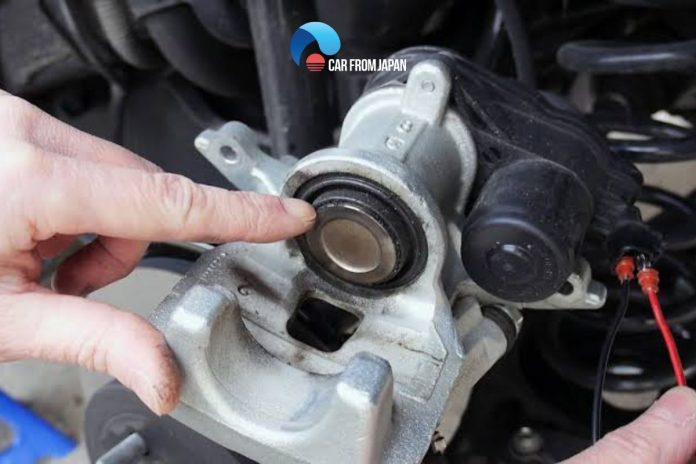Car owners might come across the issue of caliper piston won’t compress in their vehicles.
They may perhaps notice that their vehicle draws more to one direction when braking or the brakes are not releasing completely after they let go of the pedal.
Such situations should be fixed straight away so that it does not affect the safety of your vehicle. To help you fix out the caliper piston problem, here are some potential causes and reasons given below.
Contents
- How Does A Caliper Piston Work?
- Causes of Caliper Piston Won’t Compress
- Fixing the Caliper Piston Compression Problem
- How To Prevent Caliper Piston Compression Issues?
- FAQs on Caliper Piston Won’t Compress
- How can contaminated brake fluid affect caliper piston compression?
- How does air in the brake lines contribute to this issue?
- What role does a corroded caliper play in this problem?
- What can cause a caliper piston to seize?
- What are the potential solutions for a non-compressing caliper piston?
- Is driving with a non-compressing caliper piston safe?
- Final Words
How Does A Caliper Piston Work?
Caliper pistons operate through hydraulic pressure, compelling the brake pads to press against the rotor, thereby decelerating or halting the vehicle’s motion.
The caliper, an encompassing housing, accommodates the piston (or pistons) along with other brake components.
Upon engaging the brakes, hydraulic fluid from the master cylinder propels into the caliper, propelling the piston (or pistons) outward.
Consequently, the brake pads exert pressure against the rotor, generating friction and facilitating the reduction or cessation of the vehicle’s speed.
Upon brake release, the hydraulic fluid pressure subsides, prompting the piston(s) to retract, enabling the pads to disengage from the rotor. This cyclic process recurs with every brake application.
Causes of Caliper Piston Won’t Compress
There are many potential reasons responsible for the problem of not compressing the caliper piston.
Before taking your vehicle to an auto repair shop, let’s explore some possible causes for such problems.
Wear and tear of caliper bolts

The caliper bolts consist of slides on them that require being lubed. The shielding rubber boots present on them helps to keep the lubrication in.
But, sometimes these boots get torn away by the hasty mechanics when they are mounting new brake pads. As a result, the caliper piston fails to compress.
See More: Steps to Replace the Brake Piston of your Car
Sticky pistons
When the brakes are applied, the brake piston seal is deformed slightly. When the car drivers let the brakes off, they uncoil and help to compress the pistons for drag-free running.
If the piston fails to slide adequately on the seals, then the seal impedes the piston from permanently compressing.
Inactivity of the vehicle
One of the main causes of the not compressing caliper piston is the inactivity. If you are not using your vehicle for months, it may happen that the piston gets rusted.
As a result, the corrosion that is built on the caliper prevents it to compress fully, stopping your vehicle from running smoothly.
Fixing the Caliper Piston Compression Problem

There is a need to carefully diagnose and fix such issues right away as it may put your vehicle in danger. One of the main ways to compress your caliper piston fully is to take care of the brakes.
If you top-up the brake fluid and replace the brake pads when required, then you might not run into any problems with the caliper piston.
For a detained caliper piston, a special tool exists that helps to apply force and compress the pad. You can use a simple C-clamp to fix this problem.
To see how to use a C-clamp to repair such a problem, you can read some car maintenance tips over the web.
In addition, you should also clean the piston properly and apply a light coating of grease to compress the caliper successfully.
How To Prevent Caliper Piston Compression Issues?
Here are some measures you can use to avoid the issue.
Regular brake fluid changes
Brake fluid is hygroscopic, meaning it absorbs moisture from the air over time. This moisture can lead to corrosion within the caliper, affecting piston movement. Follow your vehicle manufacturer’s recommended brake fluid change intervals.
Inspect brake calipers regularly
During brake inspections (recommended at least annually), carefully examine the calipers for signs of leaks, damage, or corrosion. Look for rust, fluid seepage, or sticking pistons.
Clean and lubricate caliper slide pins
Slide pins allow the caliper to move freely. Clean and lubricate them with appropriate brake caliper grease during brake service to prevent sticking and uneven pad wear.
Address sticking calipers promptly
If you notice signs of a sticking caliper, such as uneven pad wear, pulling to one side, or a burning smell, address the issue immediately. A sticking caliper can lead to increased wear and potential piston seizure.
Use high-quality brake pads
Using quality brake pads can help prevent excessive brake dust and wear, which can contribute to caliper issues.
Avoid using aggressive brake cleaners
Some harsh brake cleaners can damage the caliper seals and boots, leading to leaks and corrosion. Use a cleaner specifically designed for brake components.
Properly bleed brakes
Ensure the brake system is properly bled after any brake work to remove air and maintain optimal hydraulic pressure. Air in the system can compress and create uneven piston movement.
Store vehicles properly
If storing a vehicle for an extended period, ensure the brakes are fully functional before storage and consider using a brake caliper piston compressor to retract the pistons slightly to protect the seals.

FAQs on Caliper Piston Won’t Compress
How can contaminated brake fluid affect caliper piston compression?
Contaminated brake fluid, often due to moisture or debris, can lead to caliper piston corrosion and restricted movement, causing poor compression.
How does air in the brake lines contribute to this issue?
Air in the brake lines can result in a spongy brake pedal and hinder proper caliper piston compression, reducing braking effectiveness.
What role does a corroded caliper play in this problem?
Corrosion on caliper components, such as slider pins or the caliper housing, can obstruct the piston’s movement and prevent it from compressing smoothly.
What can cause a caliper piston to seize?
Lack of maintenance, exposure to moisture, or the intrusion of debris can cause the caliper piston to seize, preventing proper compression.
What are the potential solutions for a non-compressing caliper piston?
Solutions include bleeding the brake system to remove air, flushing and replacing contaminated brake fluid, cleaning and lubricating caliper components, and inspecting for corrosion.
In severe cases, replacing the caliper or rebuilding it might be necessary.
Is driving with a non-compressing caliper piston safe?
No, it’s unsafe to drive with compromised braking performance.
A non-compressing caliper piston can lead to reduced braking efficiency, uneven wear, and potential safety risks. Address the issue promptly.
Check out this video from ScrewsNutsAndBolts to learn to compress a brake caliper piston without the need for any special tools!
Final Words
Now you might be aware of the possible causes and ways to fix this caliper piston problem.
In case, you think that it is quite hard to handle, don’t forget to seek the help of a professional. They will provide the best solution to your caliper piston won’t compress problem.
For more insightful Car maintenance tips, follow Car From Japan!



